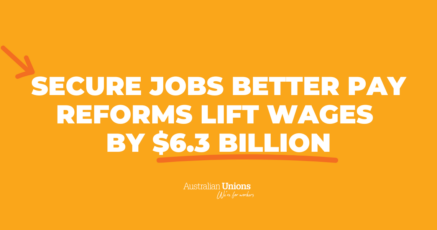
You may have heard that global interest rate rises, and inflation are among other factors causing volatility in financial markets.
Over the course of a long-term investment like superannuation, some years of below average and even negative returns are expected, but these dips are smoothed out over time.
Industry SuperFunds are particularly well-equipped to deal with short-term shocks to world investment markets because of their holdings of infrastructure, property, cash, and other unlisted assets are less volatile and outperform.
The long-term investment horizons and diversified portfolios of super shields members from the worst of the market volatility. A diversified portfolio also helps them capitalise on market rebounds. Australian super funds have returned negative annual results five times since the introduction of compulsory superannuation thirty years ago but typically rebound quickly as the economic conditions stabilise.
It’s also important to consider that making rash decisions in periods of uncertainty – like switching your super to cash-only options without proper financial advice – can leave you with less and not more in your retirement.
A member with $50,000 super who switched to cash only, at the bottom of COVID-19 market drop in March 2020, would have locked in losses of about $20,0001 than if they stayed with an industry funds’ balanced option.
Missing the market rebound by remaining in low-growth assets like cash would have cost members between $60,000 to $70,000 at retirement.
It’s understandable to be concerned about the economy and the prospect of lower super fund returns, but it’s important to remember that super is a long-term investment, and that markets have a habit of recovering.





SHARE:
Super’s a safe port in stormy seas